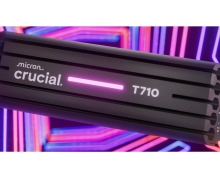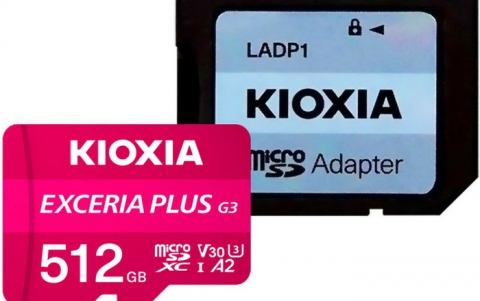Crucial BX100 1TB SSD review
6. AS SSD benchmark
We move on with the AS SSD benchmark, which contains five synthetic as well as three practical tests. The synthetic tests determine the sequential and the random read / write performance of an SSD. These tests are carried out without using the operating system's cache. The Seq-test measures how long it takes to read and write an 1GB file. Most importantly, this sequential benchmark uses incompressible data for all of its transfers.
The 4K benchmark tests the read and write performance for random 4K blocks. The 4K-64-THRD-test corresponds to the 4K procedure except that here the read and write operations are distributed on 64 threads:
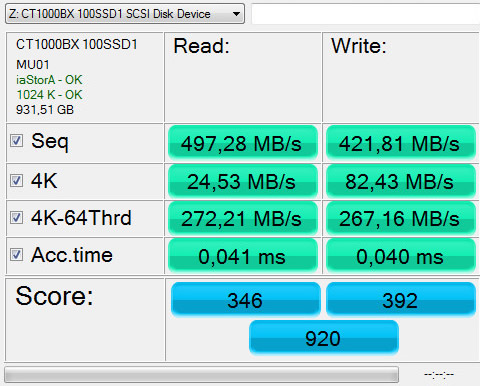
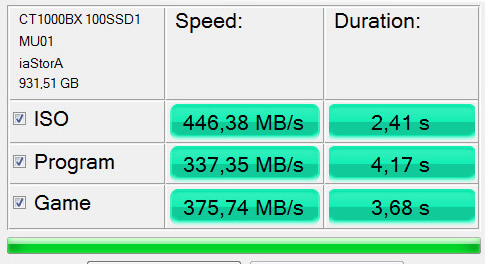
The software logged a 497.28 MB/s seq read and 421.81 MB/s in the write test - both pretty good for a budget drive. Below you see where the drive stands compared to other SSDs:
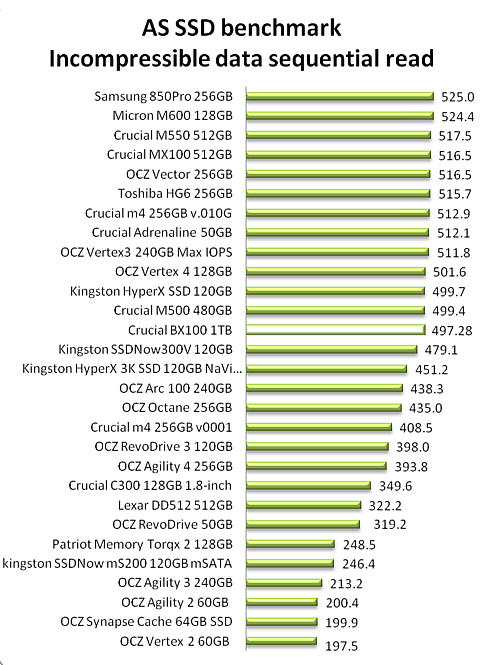
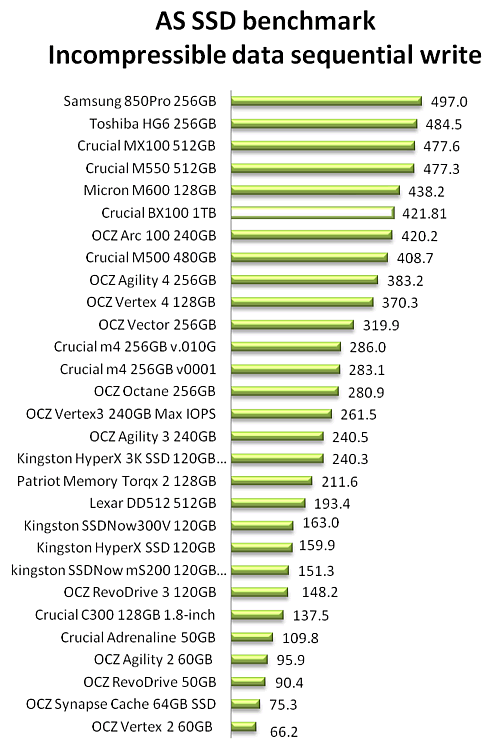
At the 4K random reading tests, the BX100 1TB SSD took the 8th place at the chart below, with an average reading speed of 22.5 MB/s.
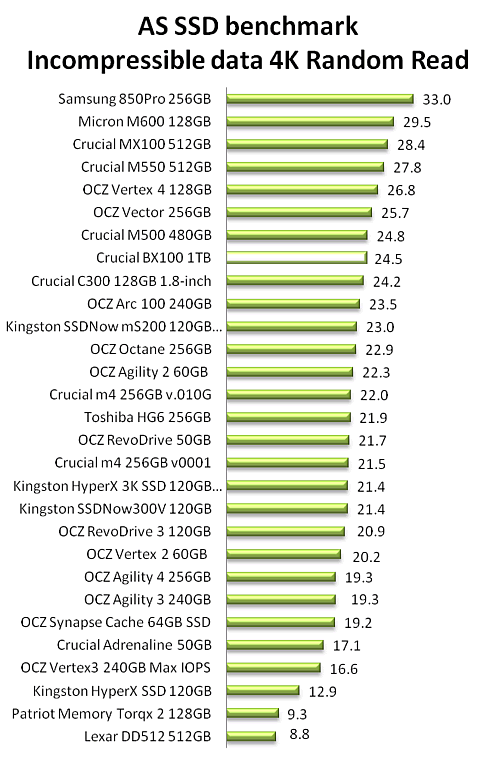
The BX100 drive was fast at the 4K random writing tests, giving 82.4 MB/s:
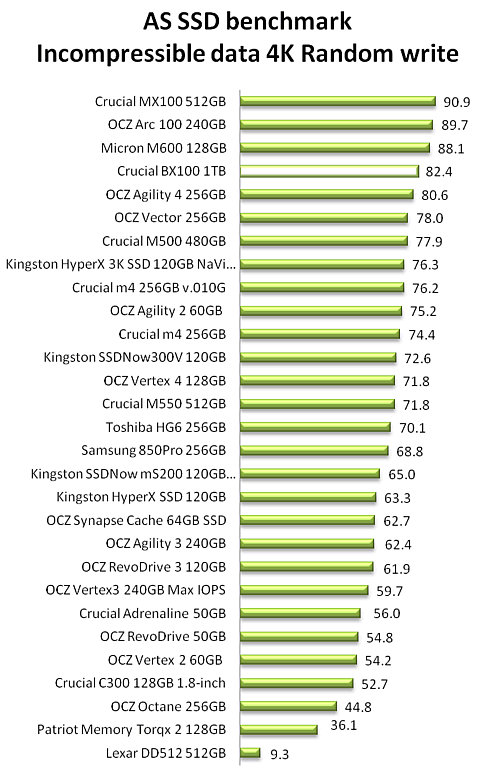
The BX100 SSD kept giving a decent performance with multi-threaded requests for random reading of 4K incompressible files. The figures we got are close to the OCZ ARC 100's:
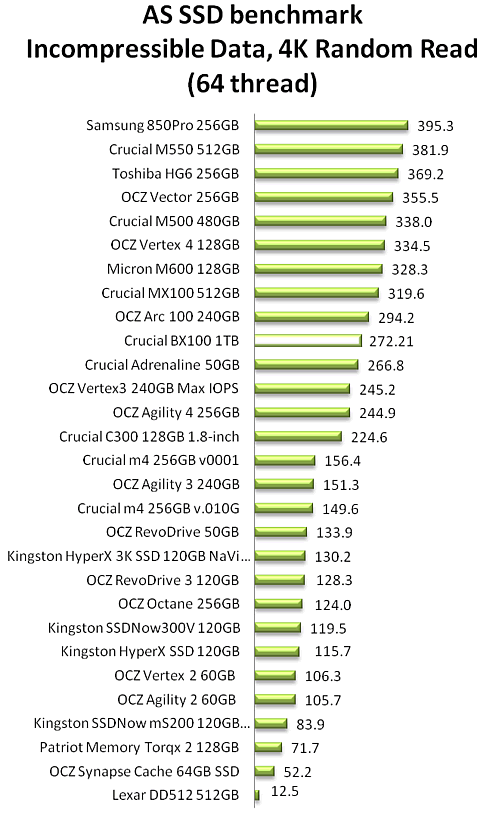
Multi-threaded random write of 4K files was not as fast as other SSDs:
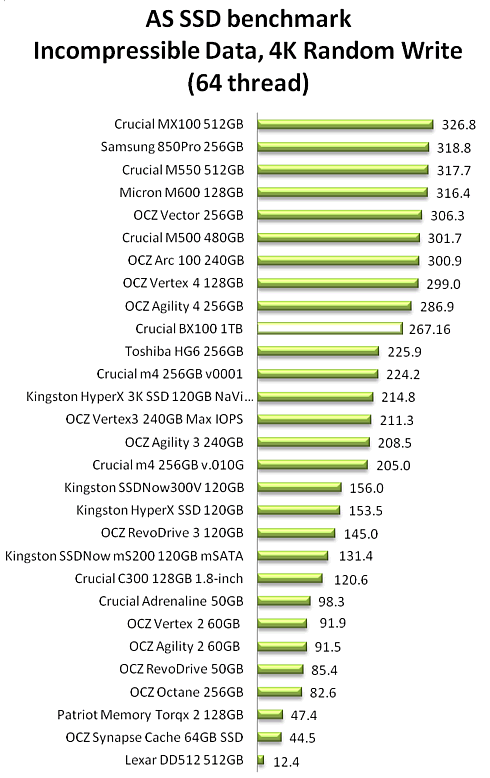
In the following graph you see how the Crucial BX100 1Tb SSD drive reads and writes files with a varied level of compression. This test creates test patterns on the target drive which are random and vary in the level of compression used in the test data. This ranges from 0% compressible to 100% compressible. The drive provided a stable and consistent performance through out the test.







